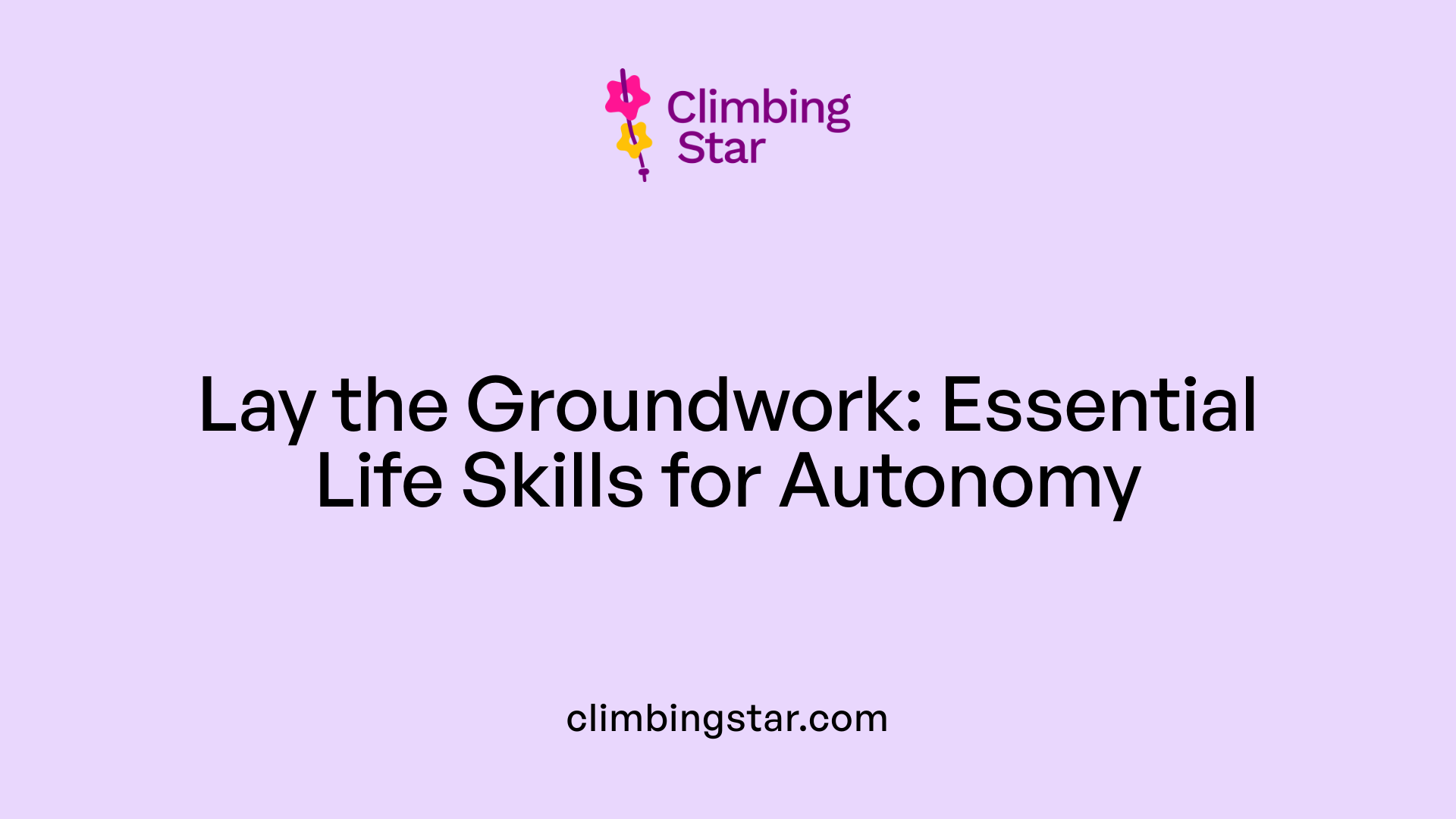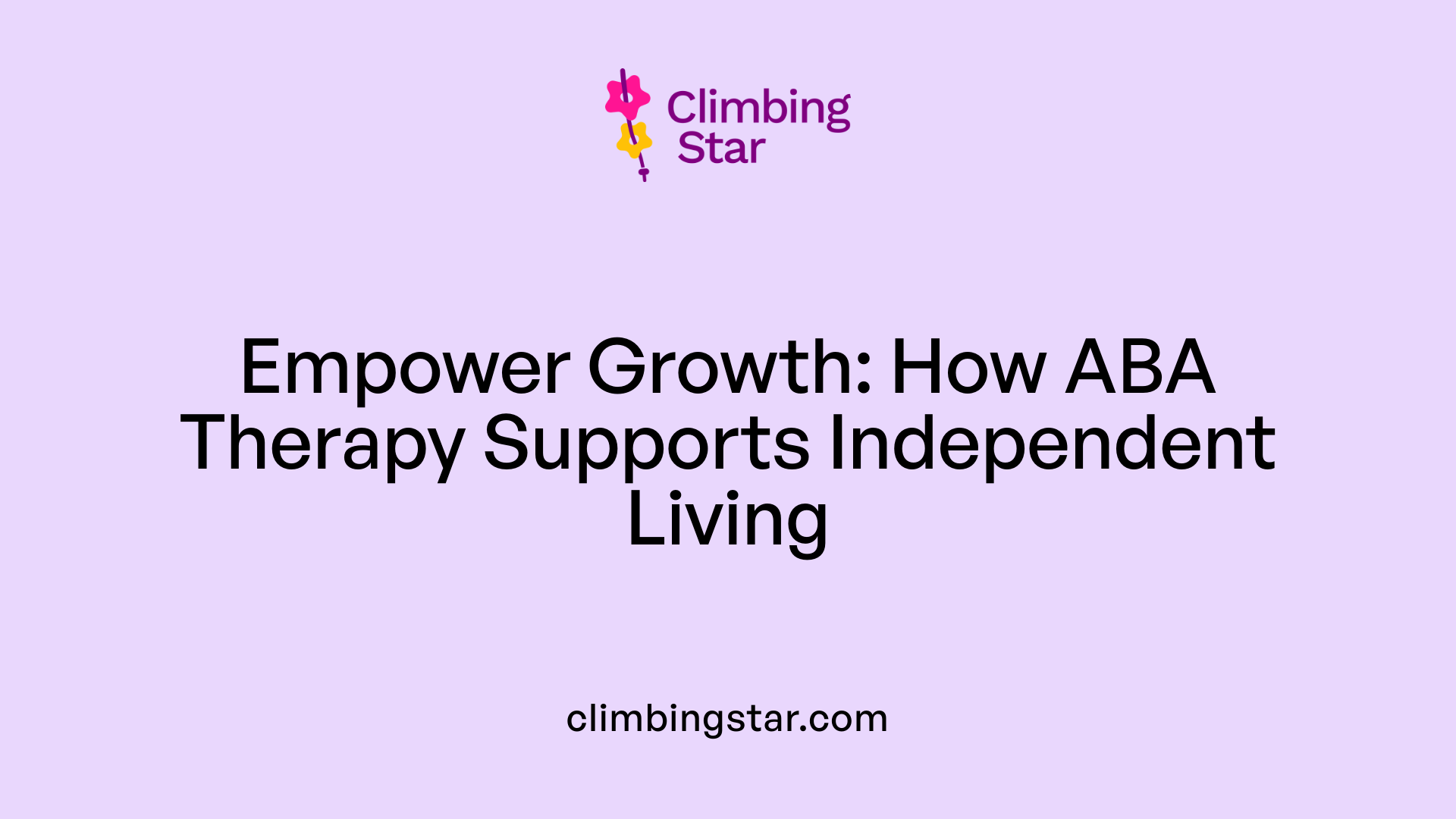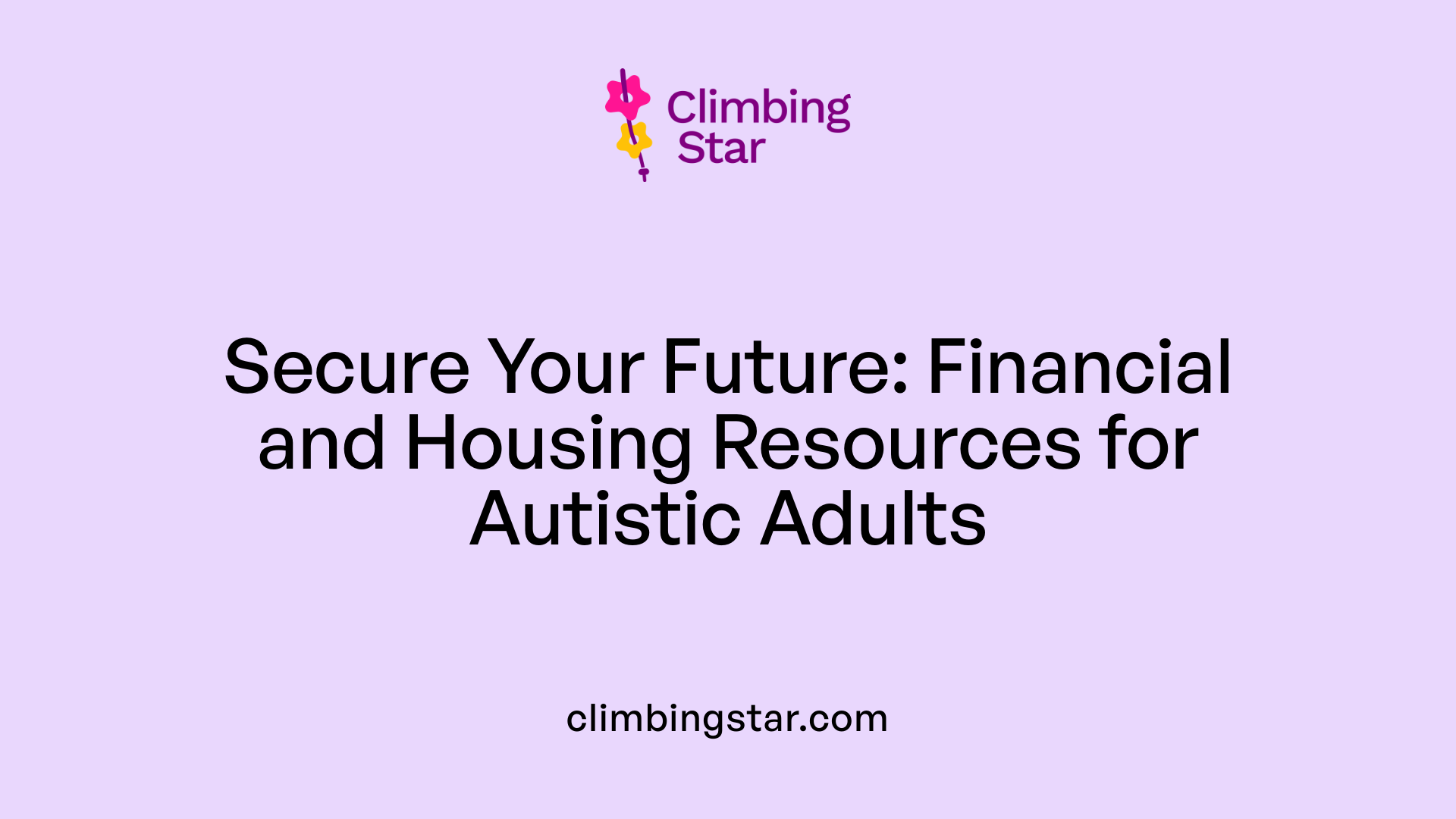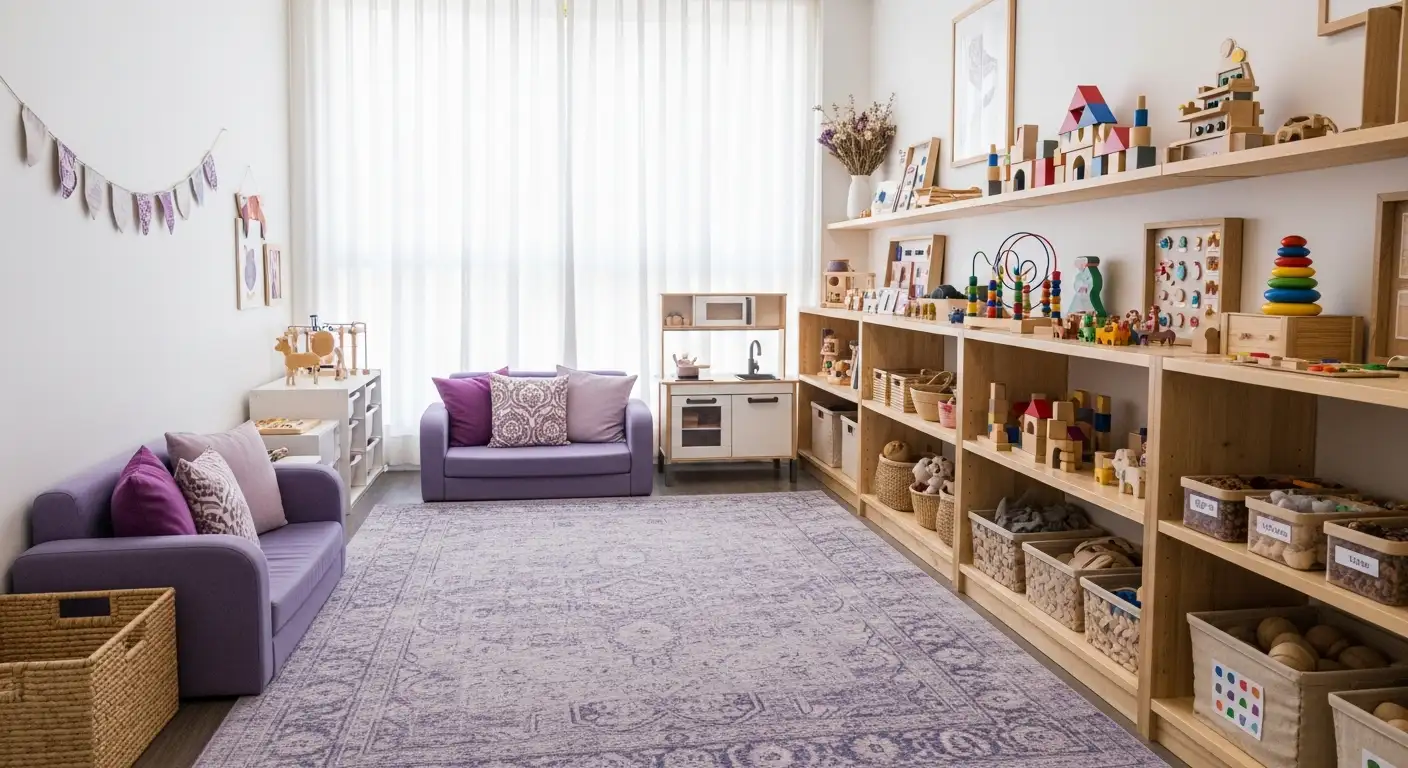Understanding Readiness for Independence
For parents and caregivers of autistic adults, the prospect of moving out can evoke a complex mix of hope and concern. Readiness for independent living involves the development of essential life skills, social competencies, and emotional resilience. This article explores critical factors, strategies, and supports needed to assess and facilitate the transition to living independently for autistic adult children.
Core Life Skills: The Foundation of Independent Living

Essential life skills for independence
Autistic young adults need essential life skills to live independently and confidently. These skills include self-care routines, cooking, managing money, shopping, and using transportation.
Self-care routines
Daily self-care tasks such as dressing, personal hygiene, and maintaining a routine can be supported effectively using visual aids like checklists and schedules. Teaching these routines in real-life settings enhances learning and promotes autonomy.
Cooking and household management
Learning to cook simple meals and manage household chores, including cleaning and bed-making, builds practical independence. Programs like Learn4Independence offer structured courses that equip young adults with these necessary skills and provide certification recognized by community colleges.
Money management and shopping
Money skills are critical for independent living. Young adults can learn budgeting, handling payments, and shopping through community-based teaching methods. Visual guides and real-world experiences help foster confidence and competence in managing finances and making purchases safely.
Transportation use
Using public or community transportation independently requires understanding schedules, routes, and safety practices. Teaching these skills within the community helps autistic adults navigate and travel confidently, which supports engagement in social and vocational activities.
These foundational skills form the basis for successful independent living, empowering autistic adults to live with greater autonomy and social participation.
Applied Behavior Analysis (ABA) Therapy and Its Role in Building Independence

What is applied behavior analysis (ABA) therapy and how is it used to support individuals with autism?
Applied Behavior Analysis (ABA) therapy is a scientifically supported approach that focuses on improving valuable skills and reducing challenging behaviors in people with autism. It uses learning principles to shape behavior by analyzing the relationship between actions and their consequences. Therapists design individualized programs for each person, applying strategies like positive reinforcement and systematic observation of antecedents and consequences to encourage desired behaviors.
How does ABA therapy benefit individuals with autism?
ABA therapy helps individuals develop important skills such as communication, social interaction, and daily living tasks. Through structured approaches like Discrete Trial Training (DTT) and naturalistic teaching in real-life settings, ABA systematically teaches new abilities while replacing problematic behaviors with more appropriate ones. This leads to increased independence and better participation in everyday life, enhancing the overall quality of life.
What are key components or techniques used in ABA therapy?
Key techniques within ABA include discrete trial training, where learning is broken into manageable steps with clear prompts and immediate feedback. Natural environment teaching allows skill practice in everyday situations, making learning functional and relevant. Other methods include prompting and fading to gradually reduce assistance, behavior chaining to teach complex sequences, and continuous use of reinforcement to encourage progress. Qualified behavior analysts customize treatment plans using detailed assessments to ensure each intervention fits the individual's unique needs.
By following these approaches, ABA therapy supports autistic individuals not only in childhood but also as they grow into adulthood, promoting skill development necessary for independent living and social engagement.
Specialized Companies and Professionals Supporting ABA Therapy Delivery
How do specialized companies support the delivery of ABA therapy?
Specialized companies play a vital role in providing Applied Behavior Analysis (ABA) therapy by employing trained professionals such as Behavior Technicians (BTs), Registered Behavior Technicians (RBTs), and supervising analysts like Board Certified Behavior Analysts (BCBAs) and Board Certified assistant Behavior Analysts (BCaBAs). These experts design, oversee, and implement personalized, evidence-based interventions tailored to each individual's unique needs.
These companies ensure therapy programs are continuously monitored for progress, allowing timely modifications for optimal results. Beyond clinical services, they handle operational duties, including staff training, scheduling, billing, and compliance with legal and ethical standards. This comprehensive management supports consistent, effective therapy delivery.
Additionally, many providers supply resources like therapy materials, data collection tools, and flexible service options such as in-home or clinic-based sessions. Importantly, their integrated support extends to families, offering guidance and educational resources that empower caregivers and promote successful outcomes.
Through this multifaceted approach, specialized companies serve as the foundation for delivering high-quality, accessible, and individualized ABA therapy to autistic individuals, ensuring both clinical excellence and operational efficiency.
Structured Programs and Assessments for Transitioning to Independence

Transition Academies and Community-Based Skills Assessments
Transition programs designed specifically for autistic young adults play a critical role in facilitating the move towards independent living. The First Place Transition Academy exemplifies this approach by utilizing Community-Based Skills Assessment (CSA). This assessment method tailors support based on individual strengths and challenges, ensuring personalized and practical skill development in real-world settings.
Programs Like First Place Transition Academy and Learn4Independence
Beyond assessment, structured courses provide comprehensive support. For instance, the two-year Learn4Independence program focuses on practical independence and career skills, equipping participants through hands-on experiences. Completing such courses can earn certification recognized by community colleges, offering a valuable credential to support further education or employment opportunities.
Vocational Training and Certification Pathways
Vocational training is a central element within these programs. Emphasis is placed on real-life job skills, community engagement, and self-advocacy—crucial areas that promote employability and autonomy. Certification pathways integrated within these programs provide a formal acknowledgment of skill mastery and readiness to enter the workforce or pursue higher education.
Personalized, Evidence-Based Therapies
Successful transition programs also incorporate personalized, evidence-based therapies tailored to each individual's needs. These therapies may address challenges such as social anxiety, emotional regulation, and sensory sensitivities. By combining skill acquisition with therapeutic support, these programs build not only practical competence but also emotional resilience, which is essential for long-term independence.
These structured and tailored approaches collectively foster confidence and capability, enabling autistic young adults to navigate independent living, vocational pursuits, and social integration more successfully.
Social Skills and Community Participation: Key to Thriving Independently

Why is active social participation important for autistic adults?
Active social participation is vital for autistic adults as it enhances social skills, builds meaningful relationships, and reduces feelings of loneliness. Engagement in social activities fosters a sense of belonging and helps individuals navigate everyday interactions with greater confidence.
What programs and social groups support autistic adults?
Various structured activities and social groups provide safe environments where autistic adults can practice communication and interpersonal skills. Organizations often host specialized social clubs and community events tailored to their needs, encouraging peer interaction and camaraderie.
How can social participation reduce social anxiety and loneliness?
Participating regularly in group activities helps desensitize social anxiety by offering controlled, supportive experiences. Peer support networks created through these programs alleviate isolation and provide emotional connections that are often lacking in daily life.
What role does peer support and community engagement play?
Peer support offers shared understanding and mutual encouragement, which boosts self-esteem and independent living skills. Community engagement not only promotes social inclusion but also empowers autistic individuals to advocate for themselves and actively shape their social environments.
Sensory Sensitivities and Coping Strategies in Independent Living
Impact of sensory sensitivities on living independently
Many autistic adults experience sensory sensitivities, such as hypersensitivity to sounds, lights, or textures, which can significantly affect their ability to live independently. These sensitivities may cause discomfort or distress that complicates daily activities and social interactions, making it crucial to address these challenges when planning for independent living.
Creating supportive environments
Creating living spaces that accommodate sensory preferences is essential. Supportive environments might include quiet areas, controlled lighting, and sensory-friendly furniture and décor. Such adaptations help reduce sensory overload and create a safe, comfortable atmosphere where autistic individuals can thrive.
Teaching coping strategies and self-advocacy
Equipping autistic adults with coping strategies can empower them to manage sensory challenges effectively. Techniques may involve the use of noise-canceling headphones, scheduled breaks during overwhelming activities, or sensory tools like fidget devices. Additionally, teaching self-advocacy skills enables individuals to communicate their needs clearly and seek necessary accommodations in various settings.
Managing routines and environmental triggers
Routines play a vital role in minimizing sensory discomfort by providing predictability and control. Structured schedules and visual supports can help autistic adults anticipate sensory experiences and prepare for them. Identifying and managing environmental triggers through gradual exposure or environmental modifications further enhances independence and well-being.
Financial and Housing Supports for Autistic Adults

What NDIS funding options are available such as SIL and SDA?
The National Disability Insurance Scheme (NDIS) provides critical funding supports to help autistic adults achieve greater independence. Supported Independent Living (SIL) assists individuals with high support needs by providing personalised support workers to help with daily living tasks. Specialist Disability Accommodation (SDA) funds specialised housing designed to accommodate people with disabilities, including tailored sensory and accessibility features that cater to the needs of autistic adults.
How do Disability Support Pension and Centrelink payments support independent living?
Besides NDIS, government payments through Centrelink such as the Disability Support Pension offer financial aid to autistic adults who are unable to work full-time due to their disability. Other payments include Youth Allowance and the Youth Disability Supplement, which provide income support while individuals train or seek employment. The JobSeeker Payment also supports those currently looking for work. These financial supports contribute to covering living expenses, helping ease the burden of independent living.
What planning tools help secure long-term independence, like Special Needs Trusts?
Planning tools such as Special Needs Trusts play a vital role in securing long-term financial independence for autistic adults. These trusts enable families to set aside funds specifically for an individual's care without affecting their eligibility for government benefits. This strategic financial planning helps ensure that dollars are available to support ongoing needs, housing, medical care, and lifestyle choices.
What range of living arrangements is available for autistic adults?
There is a broad spectrum of living options based on individual preferences and support needs. Many autistic adults live with family, supporting independence through skill development at home. Other arrangements include independent living, group care homes, supported shared living, and Specialist Disability Accommodation. Short-term accommodations provide temporary respite or transitional support. Organisations like Partners4Housing assist in navigating these options, finding compatible roommates, and accessing benefits to suit personal housing goals.
Together, these financial supports, planning tools, and housing arrangements create a foundation for autistic adults to live as independently and comfortably as possible, tailored to their unique needs and aspirations.
Challenges and Considerations in the Decision to Move Out
What Barriers Do Autistic Adults Face When Considering Moving Out?
Autistic adults often confront multiple obstacles when thinking about independent living. Employment difficulties and financial dependence are common barriers, limiting both income and the resources needed for housing. Safety concerns, including how to handle emergencies and navigate social situations, also weigh heavily. Additionally, challenges in accessing and understanding housing systems make the prospect of moving out complex.
Who Plays a Role in the Decision-Making Process?
Decisions about living arrangements are frequently influenced or made by caregivers, especially for individuals with co-occurring intellectual disabilities. Caregivers' perspectives often balance the desire to encourage independence with concerns for safety and well-being. Their involvement is pivotal in assessing readiness and securing appropriate supports.
What Worries Do Aging Parents Have?
Aging parents express significant concerns about their child's future housing and care needs. They worry about who will intervene when they are no longer able to provide support. This anxiety adds urgency to planning but can also complicate discussions about independence, creating emotional tension.
How Important Is Emotional Readiness and Support Balance?
Emotional readiness is crucial in deciding to move out. Autistic individuals may value autonomy while still requiring tailored support. Balancing this need involves preparing life skills progressively, utilizing structured programs, and ensuring supportive environments that address sensory and social challenges. Successful independence often depends on a gradual increase in responsibility paired with robust support systems.
These considerations underscore the complexity involved in transitioning to independent living for autistic adults and highlight the need for personalized, well-supported approaches.
Early Preparation and Building Independence Over Time
Starting skill development early
Developing independence for autistic individuals is most effective when it begins early. Introducing simple tasks from a young age helps build responsibility gradually. Skills like dressing oneself, bed-making, or setting the table promote confidence and self-care.
Using visual supports and checklists
Visual aids such as schedules and checklists are powerful tools to nurture autonomy. For example, visual checklists for bathing or daily routines provide clear guidance that fosters independence without overwhelming the learner.
Encouraging participation in household tasks
Involving autistic children and young adults in household maintenance tasks—like shopping or cleaning—builds practical life skills and instills a sense of contribution. Regular participation encourages routine and skill mastery over time.
Motivating through interests and addressing anxiety with therapies
Supporting personal interests, such as music lessons or volunteering, enhances engagement and motivation to learn new skills. Additionally, addressing anxieties through therapies like modified cognitive behavioral therapy (CBT) can improve confidence, reduce barriers to independence, and foster emotional regulation essential for independent living.
Planning for a Successful Transition
Determining whether an autistic adult child is ready to move out requires comprehensive evaluation of their life skills, social competence, emotional resilience, and support systems. Through structured interventions like ABA therapy, transition programs, and tailored community supports, many autistic adults develop the capabilities needed for independent or semi-independent living. Families can foster readiness by investing in early skill building, financial planning, and continuous encouragement. While challenges remain, proactive planning coupled with professional and community resources significantly enhances the likelihood of a positive, empowering transition toward autonomy and personal growth.
References
- Evaluating Programs on How to Help Young Adults with ...
- Autism and independent living
- Autism in adults: Signs, symptoms, and diagnosis
- Setting the Stage for Independent Living
- Autistic People and Moving Home: A Systematic Review
- Will My Autistic Child Be Independent? 12 Ways to Prepare ...
- Applied Behavior Analysis (ABA)
- The Top 10 Reasons Children With Autism Deserve ABA
- Applied Behavior Analysis (ABA)






